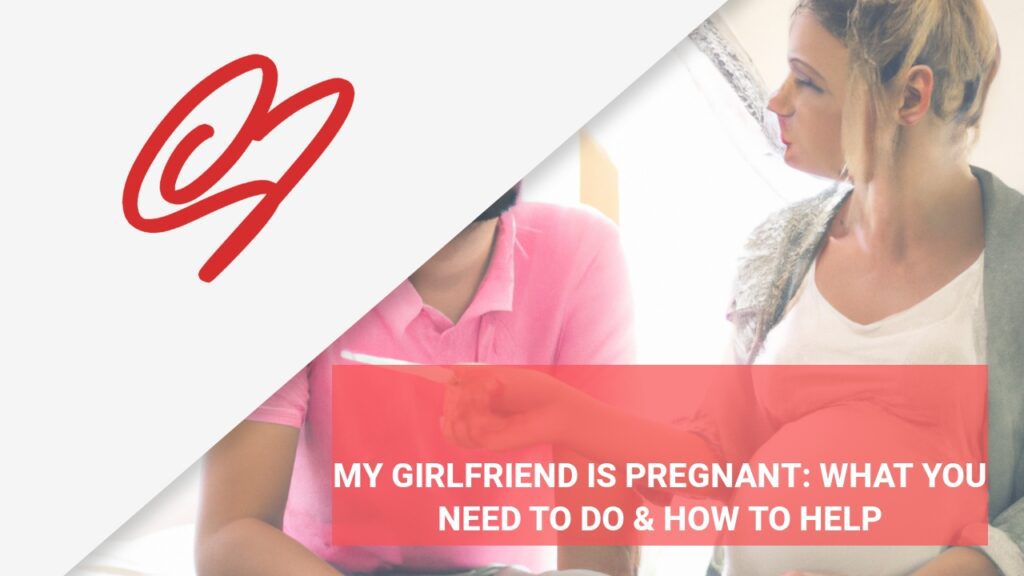
Hey there, Soul Bonding Love! I’m kinda lost here and need your help. I’ve been in a relationship with my girlfriend for over a year now and everything is…well, mostly fine. We hang out, go on dates, chill at home and even joke around like best friends. The thing is she rarely tells me she loves me. And it’s starting to concern me. I mean, actions speak louder than words and all that jazz right? That’s what everyone keeps telling me but sometimes you just want to hear the words straight from her mouth, you know? She’ll occasionally say it when we say goodbye after a date or if I explicitly tell her that I love her first. Even then, the words seem like they’re uttered more from obligation than genuine affection. It almost feels like she’s trying to appease my insecurities rather than expressing her true feelings. I’ve tried speaking with her about it once or twice but each time she brushes off my concerns saying that saying ‘I love you’ too often might make them lose their intensity or something along those lines. Is this normal? I mean, does this indicate an issue in our relationship that needs addressing? Am I overthinking things? Your advice would be much appreciated. Thanks, Concerned Lover Boy.
The Raw And Honest Truth I Would Give To My Friends Or Family Member…
Hey there Concerned Lover Boy, The thing to point out here is that love is indeed expressed in different ways, and everyone has their unique style.Here’s what I will say: If your girlfriend is showing her love through actions and spending quality time with you, then it’s a clear sign she cares for you. But, your feelings are valid, and if hearing the words ‘I love you’ is important to you, then that’s something you both need to work on.
I will tell you this, communication in a relationship is as crucial as love. It’s important to make sure your emotional needs are met and not brushed aside. It may be that your girlfriend has a different perspective on saying ‘I love you’. Maybe she doesn’t say it often because she believes actions convey it more than words or perhaps she really thinks the words lose their intensity if said too often.
The key here is not to assume or overthink, but to talk about it with her openly. Tell her how you feel. Maybe she’s unaware of the impact her lack of verbal affirmation has on you. Remember, it’s not about pointing fingers or blaming her but simply expressing your feelings.
Here’s something else I’ll drop: Nobody’s psychic in a relationship. So unless you speak up, she might not understand what you’re feeling.
And let me tell you this, everyone has different love languages. For some, it’s verbal affirmation, for others it might be gifts, acts of service, quality time or physical touch. Maybe her way of expressing love is different from yours. And that’s okay! As long as the love and respect are there.
Just keep in mind+, nobody is perfect, and neither are relationships. There might be things that bother you about her, and there might be things about you that bother her. What’s important is to communicate, understand and adapt.
On a final note, it’s fine to want to hear the words ‘I love you’. Everyone craves affection in their own way. Just remember, it’s not a one-way street. Just as much as you deserve love and understanding, so does she.
Now here’s the bottom line: Talk it out with her. Listen to her. Understand her point of view as well. Remember, a relationship is about two people, not just one.
Good luck, my friend!
But, that’s just my personal viewpoint. I’ve asked an expert relationship coach to break it down for what it is.
It might provide you with some more context.
“My Girlfriend Rarely Says I Love You”: Advice From A Relationship Coach

 Let’s break this down, shall we? When you say “My girlfriend rarely says ‘I love you'”, it might tug at a few emotional strings. It’s quite natural to seek validation through these three simple words. Love language is a term that surfaces often in relationship psychology, and it refers to the means by which we communicate and receive love. For some, saying “I love you” is as necessary as breathing; for others, it’s shown through actions rather than spoken words.
Okay, so what this actually means is that there’s a mismatch between your preferred methods of expressing affection—your love languages may not be in sync. It doesn’t mean she cares any less; her way of communicating her feelings might just be different from yours.
Diving into the Silent Depths
Let’s break this down, shall we? When you say “My girlfriend rarely says ‘I love you'”, it might tug at a few emotional strings. It’s quite natural to seek validation through these three simple words. Love language is a term that surfaces often in relationship psychology, and it refers to the means by which we communicate and receive love. For some, saying “I love you” is as necessary as breathing; for others, it’s shown through actions rather than spoken words.
Okay, so what this actually means is that there’s a mismatch between your preferred methods of expressing affection—your love languages may not be in sync. It doesn’t mean she cares any less; her way of communicating her feelings might just be different from yours.
Diving into the Silent DepthsThe heart of the matter could be rooted in psychological backgrounds or personal comfort zones. Perhaps your girlfriend grew up in an environment where verbal expressions of love were scarce but understood. Or maybe she reserves those powerful words for occasions when they feel most impactful rather than risking them becoming commonplace through frequent use. Cultural Norms and Personal Barriers
We also can’t ignore societal influences and individual personality traits that sculpt our expression of emotions. In some cultures or family settings, being overtly expressive isn’t encouraged; privacy around emotions is common. Your girlfriend might also be someone who finds it challenging to vocalize deep feelings due to past experiences or inherent introversion. The Ripple Effect on Intimacy
This gap in verbal affirmation can undoubtedly create waves in the sea of your relationship’s intimacy levels. If hearing “I love you” is crucial for your emotional satisfaction, its absence might lead to feelings of insecurity or neglect—feelings that are valid but addressable. Fostering Understanding Without Words
What your girlfriend is getting at with her silence could simply be an alternative expression of affection: think quality time together, thoughtful gestures, physical touch—all parts of the intricate tapestry of connection beyond words. It’s essential to approach this topic with empathy and understanding toward each other’s needs and preferences—a fundamental step towards building stronger communication bridges.
So while “My Girlfriend Rarely Says I Love You” reads like a stark headline across your relational landscape right now, remember—it’s not necessarily an indicator that love isn’t present; rather it hints at a divergence in how you both choose to convey those all-important emotions.
In navigating these waters together, perhaps consider opening up about how each other’s expressions make you feel without placing blame—after all, relationships are about teamwork and finding balance between different styles of communication.
Remember too that relationships are dynamic journeys filled with continuous learning about our partners’ depths—and sometimes quiet waters run deep.
With Everything That’s Been Said & Done (Or Alluded To 😬), What’s Next?
Acknowledging Your Feelings
Recognize the importance of your own emotions in this situation. It’s clear that hearing words of affection is significant to you and that’s completely valid. Many people need verbal affirmations as part of their love language, and it’s okay to want to hear those three little words. It’s not overthinking when it makes a big difference to your emotional well-being.You might be tempted to dismiss your need for verbal confirmation, but don’t shy away from understanding its impact on you. Accepting the validity of your feelings is the first step toward addressing this with your girlfriend in a meaningful way.
Talking About Love Languages
Begin a conversation about love languages with your girlfriend. This term comes from Dr. Gary Chapman’s book and it refers to the different ways people express and receive love: through words of affirmation, acts of service, receiving gifts, quality time, or physical touch.Introducing the concept can help both of you understand each other better without directly implying that she’s doing something wrong. Explain how much joy and security you derive from hearing affirmations and ask her about her primary love language too. Recognizing each other’s needs can lead to a deeper understanding and foster more intentional gestures of love in both directions.
Create An Open Dialogue
Choose an appropriate time for a heart-to-heart where both of you are relaxed and have time to talk through things without distractions or pressure.What matters here is creating an environment where vulnerability is welcome. Express that while you see and appreciate all the love she shows through her actions, hearing her say “I love you” fills up your emotional tank like nothing else can. Let her know it’s not about constant repetition but about feeling cherished with those words once in a while.
Avoiding Defensive Conversation Traps
When discussing sensitive topics such as emotional needs, it’s easy for someone to feel defensive or criticized. To prevent this, use “I feel” statements rather than “you don’t” accusations which could make her shut down or become defensive.Express yourself without assigning blame; for example say “I feel really loved when I hear verbal expressions of love”. This helps keep the conversation focused on sharing feelings rather than pointing out perceived deficiencies within one another or the relationship itself.
Gauging Her Comfort Level With Expressions Of Love
Take note if there are certain situations where she seems more comfortable expressing verbal affection – maybe when saying goodbye after dates as you mentioned – then ask why those moments are exceptions.Understanding what makes her comfortable using those words can lead into discussions on how both parties could be more cognizant about incorporating them into daily exchanges without making them feel routine or obligatory—seeking that balance between infrequent coldness and disingenuous overuse.
Promoting Reciprocal Effort In Communication Styles
Once there is an open dialogue about how each person expresses their love best, encourage each other towards growth by gently stepping out comfort zones—her working on vocalizing emotions more freely shall show effort appreciated immensely by you while likewise challenging yourself by showing appreciation for non-verbal expressions should mean equally as much. This doesn’t mean forcing changes overnight; mutual respect for preferred methods eases transitions naturally over time as long-term relationships always involve some adaptation along with preservation individual authenticity
.
Maintaining Emotional Safety Nets For Both Of You
The key throughout these steps is ensuring both partners feel safe expressing themselves openly without fear judgement criticism—this includes respecting boundaries needs even after initial conversations have taken place.
Need Some Relationship Thoughts? Write To Us!
Is your romantic life in a bit of a maze and you’re finding it hard to navigate your way? Maybe you’ve got a situation you’ve been pondering for ages, unsure of what to make of it. If you find yourself up at night, wrestling with a relationship query that has you stumped, we’re here to offer our loving but honest personal thoughts on your predicament.
We understand that sometimes you’re not looking for professional advice, but rather an empathetic ear and some thoughtful insights that can help you see your situation from a new angle. That’s exactly what we aim to provide—a fresh perspective to help you reflect on what you’re experiencing.
Just write in with your query, and we’ll share our individual viewpoints that are rooted in empathy, understanding, and genuine human experience. We don’t claim to have all the answers, nor do we pretend to be experts. We’re just here to offer our thoughts, one heart to another.
Whether it’s a first date dilemma, a ‘situationship‘ that you’re not sure how to navigate, or a long-term relationship hurdle, we’d love to offer our personal reflections.

